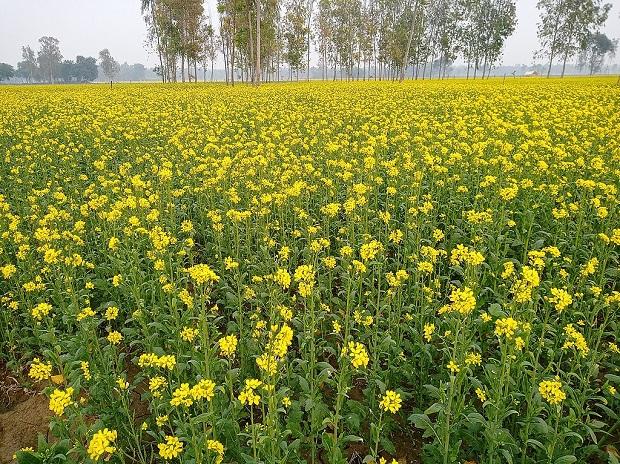[ad_1]
The government on Thursday said extensive studies carried out on toxicity, allergenicity, compositional analyses, field trials, and environmental safety of GM mustard lines versus their non-transgenic comparators had provided evidence that DMH-11 was safe for cultivation, food, and feed use.
It also said farming technologies like genetically modified (GM) crops was important to ensure food security and cut a reliance on imports and it has found evidence of any decline in honey production in the country due to GM cotton that has been cultivated since the last 10 years.
In two separate statements made in Parliament, Minister of State for Environment Ashwini Kumar Choubey and Minister of State for Science and Technology Jitendra Singh said that while strengthening of plant breeding programmes, including the use of new genetic technologies such as GE is important for meeting emerging challenges in Indian agriculture, studies conducted on DMH-11 (the hybrid GM mustard granted environmental okay) had shown 28 per cent more yield than the national check and 37 per cent more yield in zonal checks during confined field trials.
The environment ministry in October granted environmental clearance for indigenously developed GM mustard seeds, potentially paving the way for a commercial release of the country’s first food crop in about two years. Cotton is the only GM crop now allowed for cultivation in India.
“Variation of bees to the transgenic lines is similar to the non-transgenic counterparts as per data recorded during BRL (Biosafety Research Level) 1 and 2 trials conducted over three growing seasons at multiple locations as per GEAC protocols,” Singh said in his reply, while Choubey said the environmental release would help scientists study any effect of GM mustard on bees and other pollinators.
More than 60 per cent of India’s total edible oil demand is met through imports from countries such as Indonesia and Malaysia, as well as the Black Sea region.
India spent a record $19 billion importing vegetable oils last fiscal year that ended on March 31.
Russia’s invasion of Ukraine also disrupted imports and raised prices, before supplies improved.
Activists have said GM mustard would require widespread use of herbicides and pose a threat to honey bees. India’s Supreme Court is hearing a challenge to the decision to allow an environmental release of mustard hybrid “DMH-11” for seed production and other tests before commercial release.
India, set to overtake China next year as the world’s most populous country, in 2010 blocked the release of a genetically modified version of eggplant following opposition from environmentalists and some farmers.
Scientists say India’s growing population and shrinking cultivable land mean it needs to adopt more efficient ways of farming to feed its nearly 1.4 billion people.
[ad_2]
Source link



